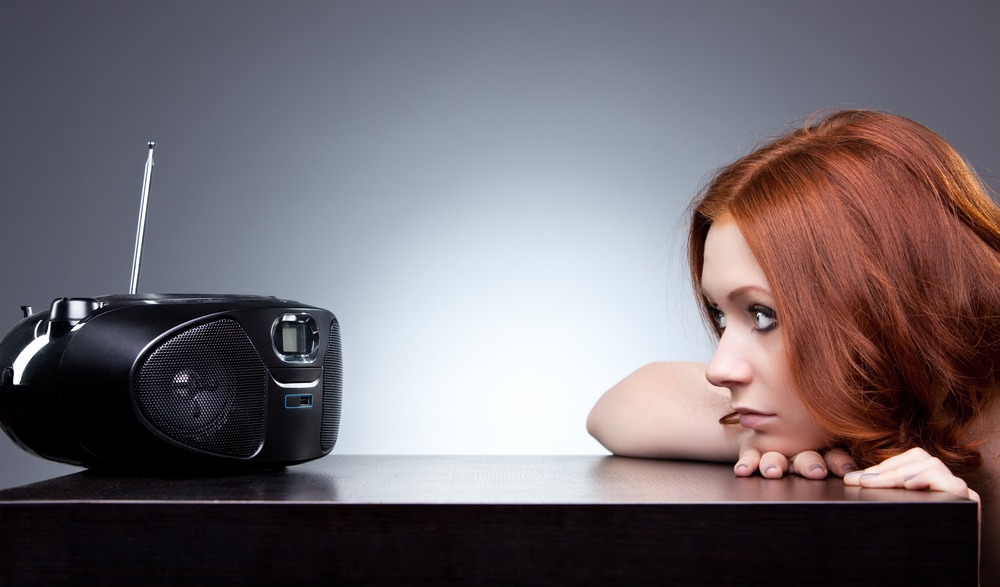
Radio? Boring.
At least that’s a lot of what we hear from the naysayers.
I was in a taxi recently (yes, they still exist) with a young driver who told me he also works as a dispatcher. I asked whether his company uses CB radio for communication, and he said:
“Radio? I don’t listen to any radio. It’s all BORING!”
OK, then.
Let’s face it. For lots of people – those who grew up with it and for those who hardly listen today, radio is often considered a boring “been there, done that” product that hasn’t really hasn’t broken much new ground in recent years nor kept up with the times. Even though many radio companies and stations have made strides in the area of digital content and distribution, the prevailing perception is that radio is old.
And the reality isn’t too far from that belief, especially when you look at the industry’s demographic makeup. The industry isn’t growing, and those most engaged tend to be north of forty. Most younger people will tell you they only listen when they’re stuck in a place with no alternatives – like a car. And based on the proliferation of connected cars and slick infotainment systems, those days may be numbered. The automotive industry is rapidly providing more and more choice in their dashboards, and our surveys shows radio listening in cars is slowly but surely eroding.
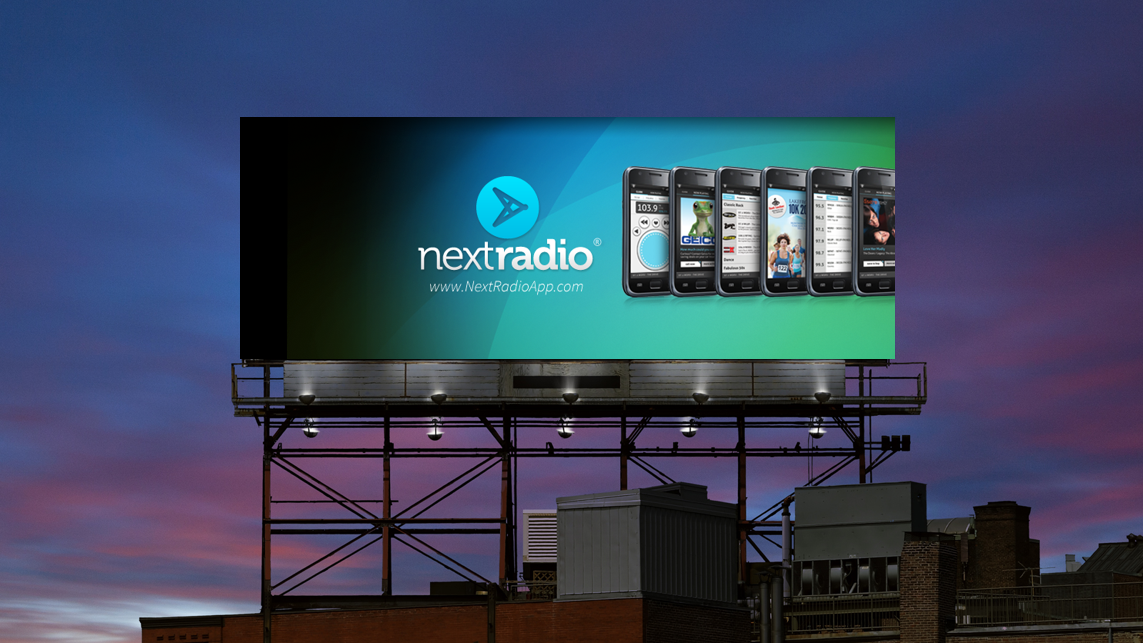 It wasn’t that long ago that Emmis CEO, Jeff Smulyan, was traveling the country, trying to market NextRadio. In Jeff’s stump speeches (and I was witness to many of them), he often talked about how it was important to “make radio sexy again.” The idea, of course, was to activate those FM chips in our smartphones. Jeff wasn’t able to pull off what proved to be a Gargantuan task, and neither have those of us working in the industry.
It wasn’t that long ago that Emmis CEO, Jeff Smulyan, was traveling the country, trying to market NextRadio. In Jeff’s stump speeches (and I was witness to many of them), he often talked about how it was important to “make radio sexy again.” The idea, of course, was to activate those FM chips in our smartphones. Jeff wasn’t able to pull off what proved to be a Gargantuan task, and neither have those of us working in the industry.
Radio may be a lot of things – sexy isn’t one of them.
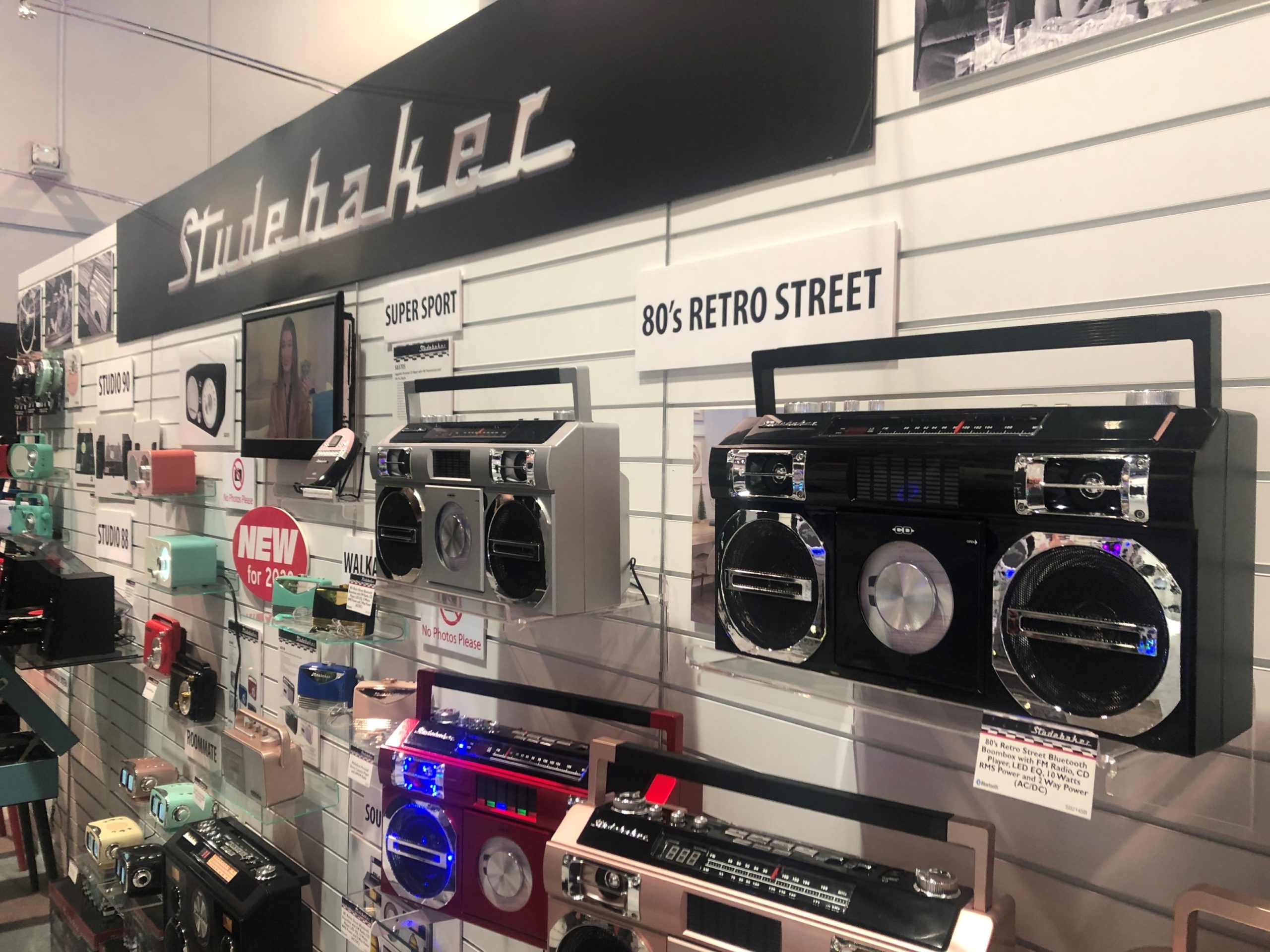 Even pitching radio as a retro medium hasn’t been particularly effective, based on the exhibits we’ve seen at CES from vintage brands like RCA and Victrola. Antique-looking radios with Bluetooth connections aren’t likely to get anyone’s juices flowing.
Even pitching radio as a retro medium hasn’t been particularly effective, based on the exhibits we’ve seen at CES from vintage brands like RCA and Victrola. Antique-looking radios with Bluetooth connections aren’t likely to get anyone’s juices flowing.
So when I ran across an article in Entrepreneur by John Boitnott titled “5 Expert Trips for Marketing a Boring Product,” it spoke to me. He says a key is to help your customers – in this case, listeners – “become more emotionally invested in what you offer.”
Wait – we can use marketing to change perceptions about radio?
That’s the premise, and I believe it’s accurate. Us radio people know just a little bit about how attitudes and opinions can be modified with some well-placed and smartly written and produced marketing.
Sure, radio has inherent problems and drawbacks, many of its own making. Most commercial stations are simply over-commercialized. They also tend to be conservative either with their music selections or their talk content (take your pick), and much of the time, radio today sounds mechanical and detached. Criticism that broadcast radio has lost much of its local charm is well-placed, too.
Boitnott uses NetSuite – an Oracle product – as an example of a boring product in dire need of sexy marketing. It is essentially bundled software for business that handles utilitarian tasks. It’s hard to get excited about it.
He turns to Oracle NetSuite’s senior director of global product marketing, Lisa Schwarz (pictured), tasked with promoting the product. Her advice? “Find the hero of your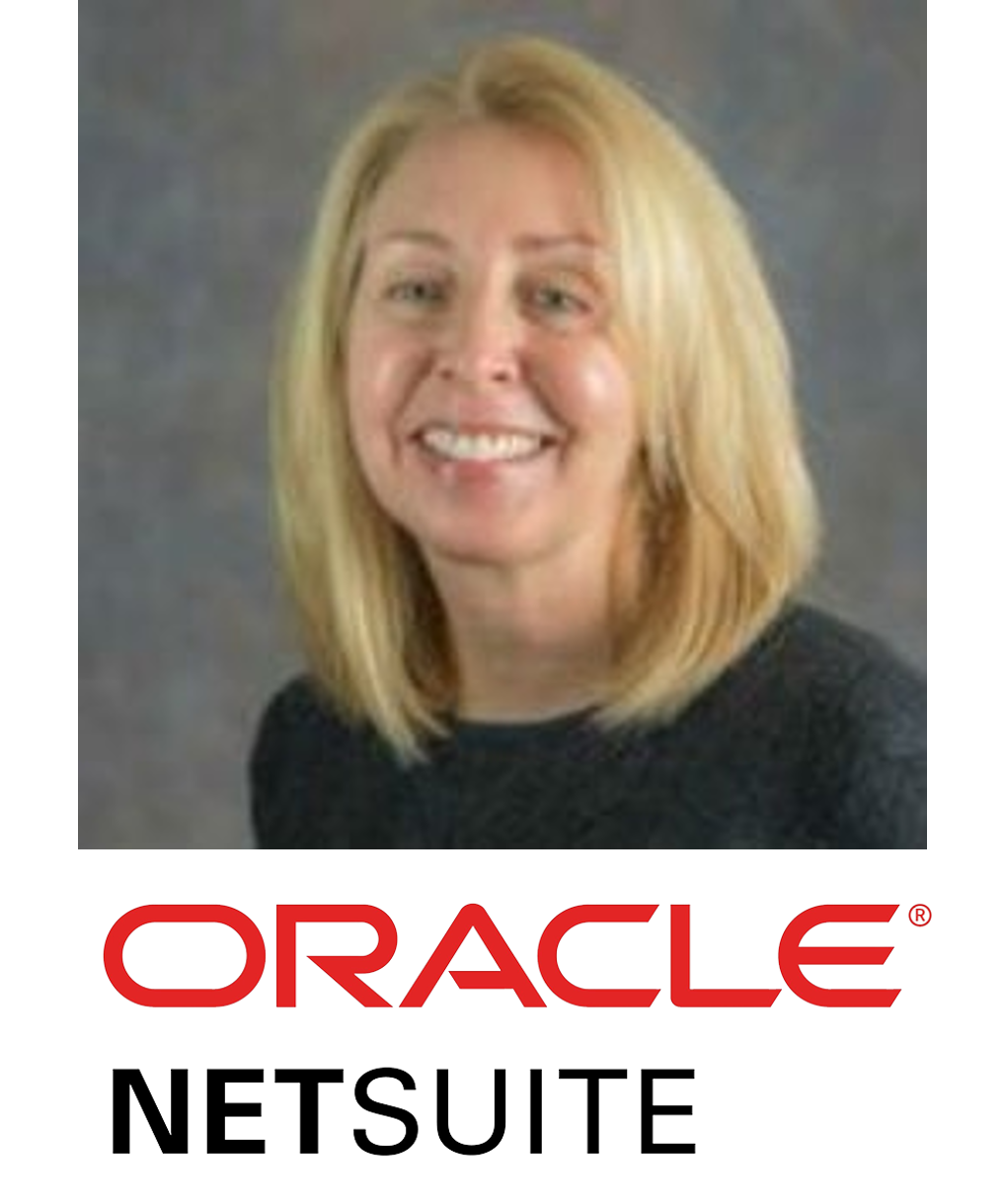 marketing story.”
marketing story.”
Schwarz says the hero is the customer, and NetSuite is the wing man – like Alfred in the Bat Cave. The marketing mission is to track the “hero’s journey” – how the product (in this case, radio) makes listeners the star.
My mind ran right to contests, and all the winners most stations amass during a typical year. Sadly, their “hero’s journey” is a short one, usually lasting 10 seconds – or less.
“I WON??!!”
After the screaming (if the listener is actually enthusiastic) dies down, we’re onto the next song or another cluster of commercials. The fact Teresa in St. Clair Shores just won $1,000 or Brian in Overland Park just scored two tickets to see Bruce Springsteen at the T-Mobile Center becomes a thing of the past in seconds, written on a “winner’s sheet” and then filed somewhere.
How did Teresa spend the money? Did it come in especially handy for the holidays for her and her four kids, especially after being laid off in September?
And what about Brian who tried to vain to buy Springsteen tickets when they went on sale? Who did he take to his very first Springsteen concert, and how did it feel to see the Boss and his E Street Band at their first appearance in Kansas City in more than a decade?
I’m betting the majority of your contest winners this year would be more than happy to make you a :60 video extolling the joy they experienced because of your station – how you made their holiday, brought them closer to the music they love, or made them a hero to a kid, a spouse, a friend, a relative.
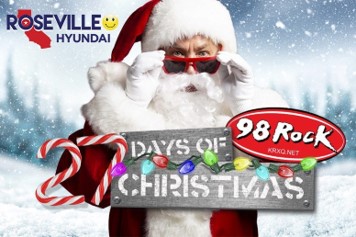 And then there are the life-changing differences a station makes in the lives of its listeners. Maybe it was the result of a “Christmas Wish” promotion. Or perhaps it occurred during your station’s coverage of a local tragedy, be it a natural disaster or a shooting in the community. In these cases, local radio stations often provide lifesaving coverage. Why not lean into that?
And then there are the life-changing differences a station makes in the lives of its listeners. Maybe it was the result of a “Christmas Wish” promotion. Or perhaps it occurred during your station’s coverage of a local tragedy, be it a natural disaster or a shooting in the community. In these cases, local radio stations often provide lifesaving coverage. Why not lean into that?
Listener-generated videos can live in a multitude of places – on social media, station websites, a YouTube channel. And their audio tracks make great on-air promos.
And let’s get real – marketing isn’t going to “fix” radio’s congenital problems, especially the self-inflicted wounds and unforced errors that have plagued the industry for decades now. But for those still listening, smart and savvy messaging can be reminders of the medium’s value and charm.
Schwarz says another key is to “challenge old habits.” In her world, that translates to multimillion dollar companies still using spreadsheets. As she says, “Aunt May is doing the books once a month.” So, it comes down to pitching new applications as exciting.
Radio is no different. There’s the “analog transition” – getting the industry’s employee base on board with the value of technology like streaming and podcasts, as well as gadgetry like apps and smart speakers.
well as gadgetry like apps and smart speakers.
And then there’s the audience. While COVID helped transition millions of seniors and “technophobes” to downloading iPhone apps, speaking to Alexa, and logging into virtual meetings, it is still essential for radio to intentionally promote how new software and hardware can enhance the listening experience, especially when there aren’t “regular radios” in the vicinity. There still millions of consumers who haven’t gotten the memo that “your smartphone is a radio.”
Finally, there’s the task of defining what your product – in this case, radio – can “do better than anyone else.” You won’t be surprised to hear me lean into radio being free, live, and of course, local. These are all values and attributes that most other media competitors cannot claim. (Sadly, many radio stations these days can’t either.)
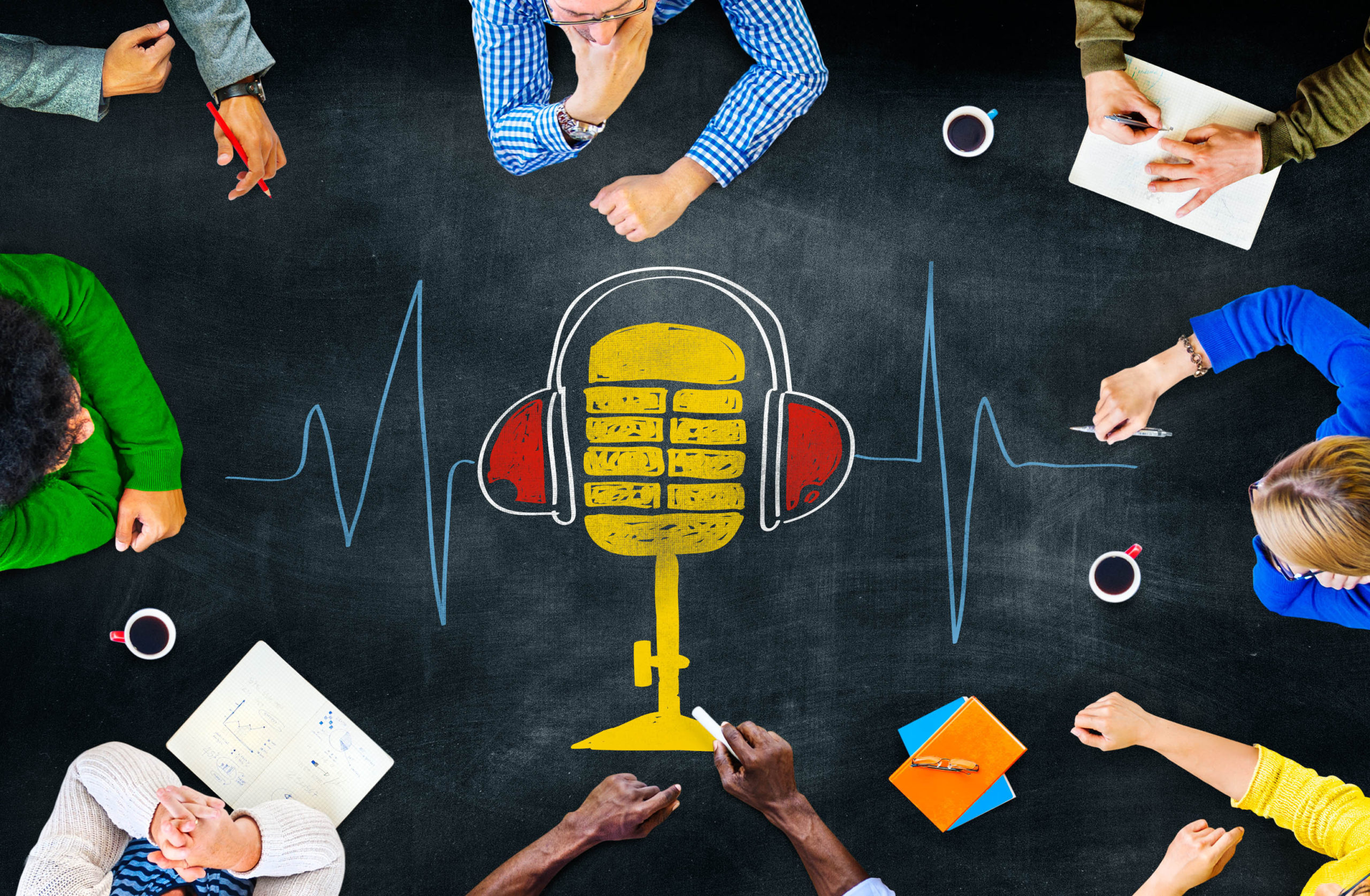 No one said it was going to be easy. For radio to reposition itself, there’s heavy lifting involved. But given the lack of an industry-wide strategy that outlines how the medium can regain its vitality and value, stations or companies that take up the mantle aren’t likely to face much in the way of direct competition or even headwinds. Everyone’s too busy making Q4 sales goals or testing and identifying songs that are a little “crispy” and should be “rested.”
No one said it was going to be easy. For radio to reposition itself, there’s heavy lifting involved. But given the lack of an industry-wide strategy that outlines how the medium can regain its vitality and value, stations or companies that take up the mantle aren’t likely to face much in the way of direct competition or even headwinds. Everyone’s too busy making Q4 sales goals or testing and identifying songs that are a little “crispy” and should be “rested.”
Leaning into attributes that are both unique and desirable to consumers isn’t a pipe dream. There was a time when radio lived up to its own hype.
Radio – boring? It’s a perception. And perceptions can be turned around.
Perception is reality.
Until it’s not.
Speaking of Jeff Smulyan, his new book “Never Ride A Rollercoaster Upside Down” will be published on December 6. Undoubtedly, there will be numerous radio stories. Amazon link here.
- I Read The (Local) News Today, Oh Boy! - April 15, 2025
- Radio, Now What? - April 14, 2025
- The Hazards Of Duke - April 11, 2025




Amen. One of your best posts ever.
Glad you like it, Kurt. It’s a topic that is near & dear to me.
Great way to start the week, Sir Fred. Here’s to new excitement On The Radio. Digital is the perfect conveyor of great broadcast content. That’s A New Year’s Resolution. Connected Personalities Are The Secret Sauce.
Appreciate it, Clark!
I don’t think radio can market its way out of being perceived as and actually being boring, but it could program its way out of it.
Having listeners share their life experiences seems like a great idea whether they just won a contest or not. You could even have a tracked jok ask for people to share their lives in 60 seconds, have them uploaded to a central database, assign editing them to some overworked corporate production people and then have regional format captains pick the best ones to be seamlessly uploaded to the automation and logged in between previously uploaded tracked jok breaks. And you know what…it could actually sound really good and bring some local vibe to a fully automated station.
Maybe some of this stuff could go viral on TikTok – when was the last time a radio bit did that?
Nice to see the juices flowing, Bob. And you’re right – to break the fever, radio has to walk and chew gum at the same time: better programming AND better marketing.
Mandate #1 to solve this should (but won’t) be: Get rid of the “keep it short and get back to music” attitude. Even if air talent has the time to edit a winner recording — and generally, these days, we tend to run the contest at the beginning of a sweep and play the winner at the end, and the automation is handling the mechanics, so why ISN’T there enough time? — if it runs past 15 seconds there is some PD asking “why did that go so long?”
Bob Bellin’s idea does present a partial solution, except that it removes the near-immediacy of hearing the winner in the context of having won right that minute.
But, the idea of “how this changes your life” works great for the Christmas Wish promo, and it really shouldn’t matter if it takes as long as a full minute to air those in context with all-Christmas programming (which tends to be where that promotion lands in any given market these days).
Radio is boring when it does not relate to the listener. When it does relate, the audience doesn’t care how long it takes because the content becomes compelling. That’s where our mindset belongs.
Thanks for this, K.M. There’s listener benefit to all of this, especially the storytelling piece.
I do worry about just removing the “shut up and play the hits” mandate. For many people on the air, it’s been that way their entire careers. Abruptly taking off the training wheels could get bumpy.
K.M.’s comment and your reply, Fred, make me wonder why radio abandoned something that seemed to serve it so well for so long And no, I’m not talking about an attitude of, “That’s the way it was always done.” I’m thinking of when a morning show included lots of fun bits and audience interaction…AND music. Morning shows have simply become “talk shows” on music stations, while the rest of the day announcers aren’t allowed to say more than a liner. We know stations that promote they play more music tend to lag in the ratings–and that was true even before the plethora of music choices. People DO like and want personalities on the radio. But I think we can do better than NO music in the morning and NO talking any other time. Maybe loosen both of those restraints–some fun music mixed into the morning show, and then during the day, when people are working and it does become more of a background medium, then you can go with more music but not to the exclusion of any genuine, warm, true audience interaction with the personalities. Maybe take off the training wheels WHILE watching out for potential bumps. I know I’d listen more. Maybe others would, too. Anyone with an under-performing signal let me know. I’m happy to give it a try.
Genuine listener engagement is clearly the key to reversing the radio industry’s decay. This has to be Fred Message No. 1, rightly so. I wonder whether any broadcaster, anywhere, has ever envisaged, and staffed, the role of Community Ambassador–a radio diplomat whose job is solely to build listener relationships, such as the examples you gave (maintaining contact with contest winners and others who have been helped by the station’s community service) as well as others you might’ve (eg, maintaining lists of local community organizations, social clubs, etc, and actively soliciting PSAs from them). Someone the PD cannot ignore.
Radio has spent decades selling others’ products. The time is long past for radio to start selling itself, not just to advertisers but also to the audience.
I love the concept of a Community Ambassador. Back in the day when there was one GM per station (what DID they do all day??) and the full complement of sales managers, I wanted to believe that person would be the one getting to know the mayor, county commissioner, corporate leaders, etc. But as an “ambassador” to the audience, not really.
And your last line is aa really good one. I’m on board.
Hi Fred great article totally agree
I have a few questions for Rock stations why don’t we let our in air talent or music folks people who are connected to music in the building who are in touch make decisions why do we play the same old boring stuff that make most people tune out emotionally mentally
yes I’m sure research shows people stick when they hear the same old rock songs but why wouldn’t we want ti stimulate the Broca and get people excited enthusiastic and anchor them emotionally to great music they haven’t heard over & over of course it’s boring when’s the last time we watched the same tv show or video over & over or read the same article every week
! I think radio has become boring for many reasons & all of us in the industry are guilty a part of of the problem ! We should go back to the days of what made great radio great radio ! Music and on air talent have taken a back seat because of people on all sides micromanaging what’s played or said !
I love radio its still a great medium being live & local
However consumers & advertisers have a kit of options what’s going to keep them listening sticking & spending
In my opinion it’s by reinventing the medium if possible ! We want people to anticipate what’s ti come next most radio is overly repetitive on the programming side !
Love ti chat some time
Sincerely Matt
845-220-7472
Matt, thanks for this comment. You frame the situation well. And we’re all complicit in making radio less stimulating, myself included. There are a lot of pressures on programmers to consistently deliver ratings. “Loosening up” might actually lead to greater listener satisfaction or perhaps lower ratings. And therein lies the gamble. Programming a station that takes even a minimum of calculated risks is more difficult to pull off, especially for PDs on the air, in other roles, or programming multiple stations. There is no one-size-fits-all solution here.
Yet there are so many radio companies with so many stations in so many markets. Why don’t they experiment with some of them and see what changes might make radio more interesting and generate better ratings?
Write a promo, save a station.
It’s theater of the mind and it works now just as well as it did in the 60s, 70s, 80s, 90s (“and today!”) Where are the writers, the creative inventors, the production wizards? We didn’t exactly groom them over the past 20+ years with our commercial-free weekends and production heavy formatting. Radio need not be boring. But the craftsman approach is few and far between.